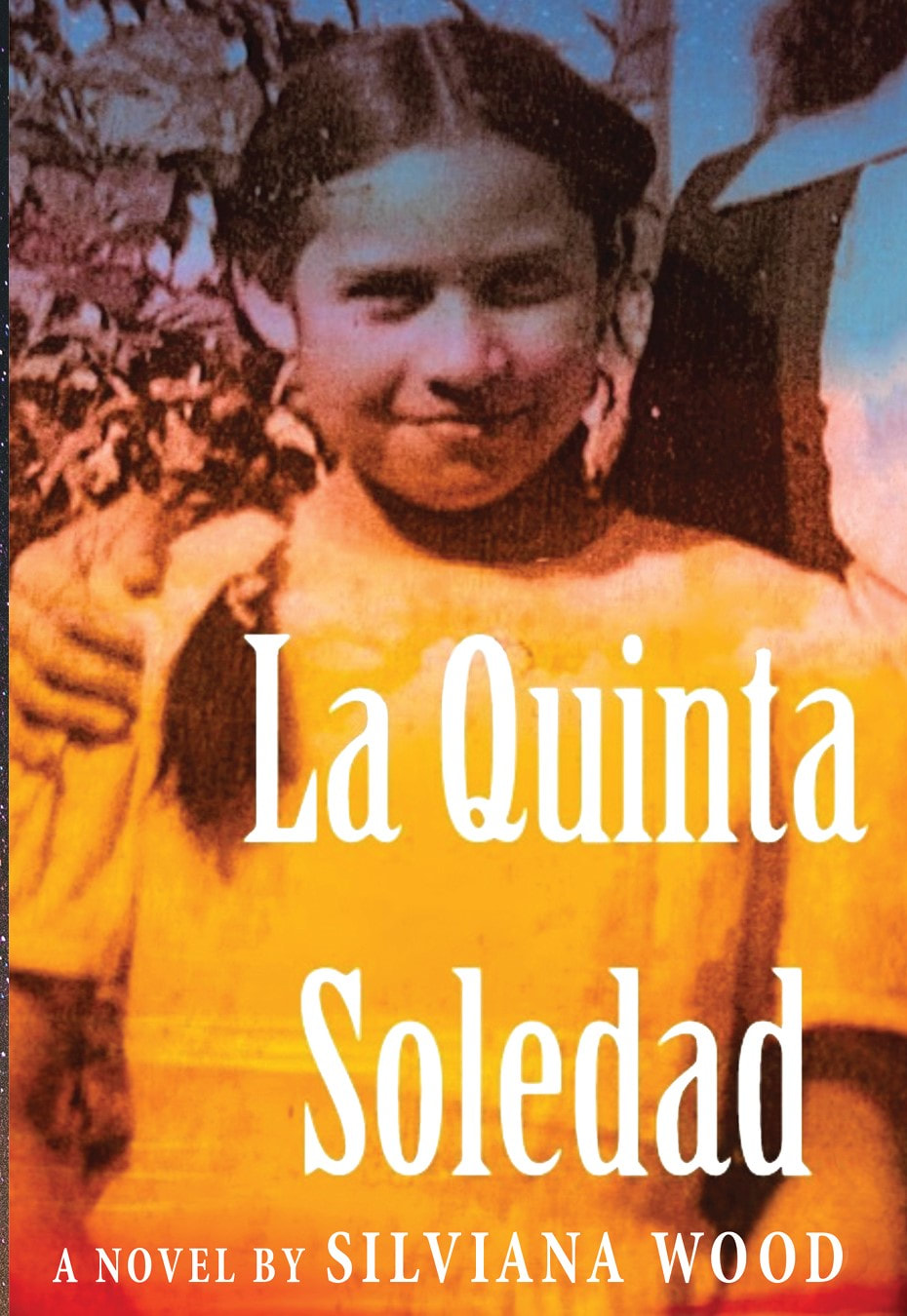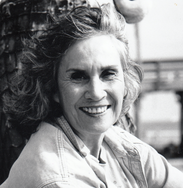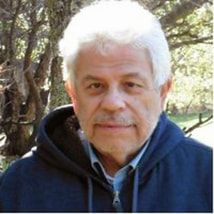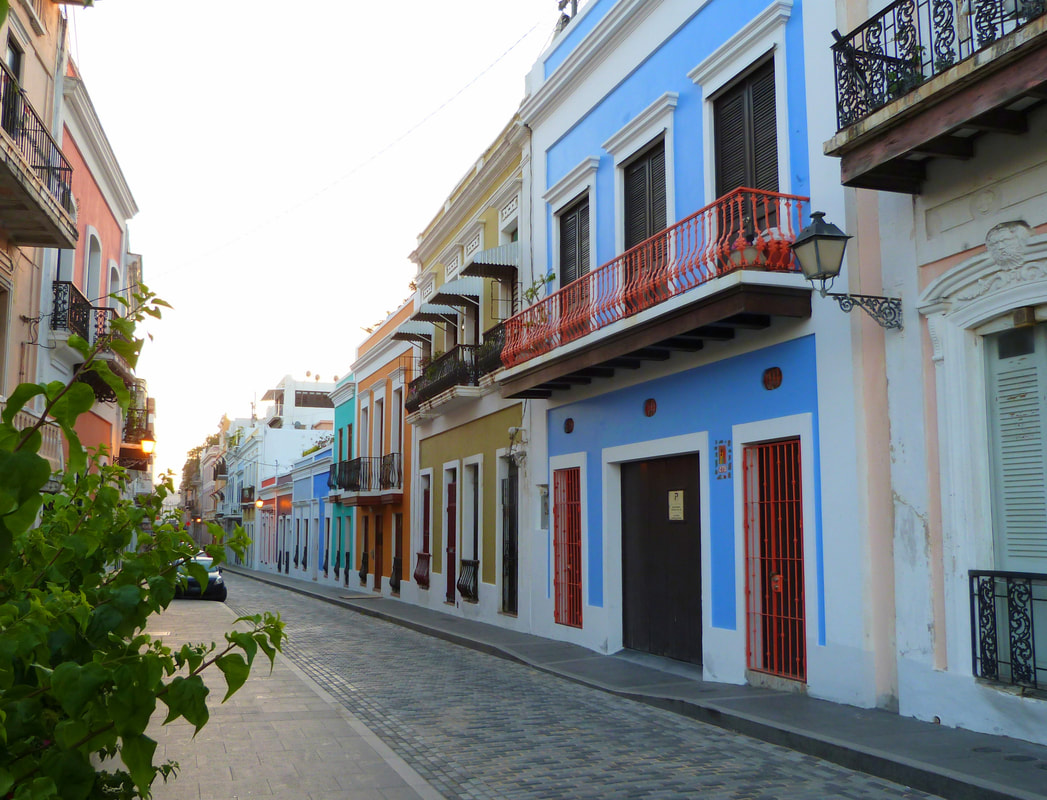“The Mothers of Llullaillaco”by Julia Aguirre I heard the story of The Children of Llullaillaco, and the thousands that preceded and followed them. I wept for them, though it was hundreds of years ago, and I was angry for their bodies, kept from their families in life, in death, and hundreds of years after. But in between all that, I thought of their mothers. The mother of El Niño, what she might have felt, when her baby was taken that day. She always knew he was beautiful, from the moment she held him in her arms, he was the most beautiful thing to her, and he would have been even if the elite declared him ugly. But they declared him beautiful. Was it because she looked at him like he was? If that was the reason, would she have taken it all back, treated him as a monster, if just to let him live? They say that the families of the poor should have been honored, honored that their beautiful peasant children looked like they could be the children of kings, honored that their precious sons and daughters would be sacrificed, to save the true royal blood that graced the earth. How could you not be grateful, they said as they bound the children like slaves, that we get to kill your child? The mother was not grateful. Another may have been able to lie to their children, to fake a smile until they were out of sight. He is just a child, just a baby, and she cries, she screams and fights even when they beat her into the ground. She knows she might not see tomorrow for her outburst, but she will not let her baby go, no, not without him knowing that this is wrong, that she didn’t want this, that he should have lived and been happy. She will take his place, she will carve out her own heart for the gods, place herself on the altar to appease the wealthy who crave the blood of her son. El Niño cries, and in a moment, he is gone. His mother is not dead, not yet. But she wishes she was. In five hundred years she will be called a barbarian by white men who steal from the grave of the child she lost. A woman who knows nothing will call herself El Niño’s protector and mother, and keep him from his true family. The mother of Llullaillaco will find comfort will be knowing her son died knowing she loved him, and that knowledge made him fight, fight until his very last breath, even as the wealthy dug drugs between his lips and forced him to chew, even as they fed him meat so he felt like a king in those last moments, with the cold unforgiving mountain suffocating him, even with his mind swirling frantically, he knew he had to get back to his mother’s love, that she didn’t want this. He died knowing this was wrong. There were other children, who died a little more peacefully, perhaps, and there were others who lived safe and sound. I imagine another mother of Llullaillaco, wrapping her arms tightly around her ugly, royal-born child, who would have been sacrificed if El Niño had been ugly too. She does not want to watch, but she does, as El Niño fights for his life, his ribs breaking against ropes that tie him down as he tries to get up. She does not weep. She will not, until later, when her baby is asleep. She will cry and thank the gods for giving her this ugly child. And deep down, she will hate herself all the same. If ever there is a day her son grows, and is horrified by the altar and the blood on his mother’s hands and the drugs and the ropes, she will scream and beg his forgiveness, tell him she had no choice, that she was a monster, yes, she would be called a barbarian by the white men who dug up bones that didn’t belong to them, but she loved her son, loved him enough to kill another child if it meant keeping him safe.  Julia Aguirre is a 24-year-old woman living in Texas. She graduated with her bachelor’s degree at Brigham Young University. She majored in English and received a minor in Spanish. Her focus as a student was on creative writing, and she hopes to one day be a full-time novelist and part-time writing professor for university. Julia Aguirre is part Mexican, part Native American, and part white. Her bisabuela immigrated to the US with her parents when she was very young. With each generation, the love and traditions in the family continues to live on, and Julia has found more ways to reconnect with her ancestors through her writing. This is her first submission to a magazine. She plans to attend graduate school to receive her MFA in creative writing. Until then she will do what she does best- write until the ink runs out.
0 Comments
“Cambalache”by Diego Alejandro Arias Here they were, sitting in a car. Miguel looked over at John. He was slapping a hand on the steering wheel. The fingers long, crooked, their skin wrapped around his joints and fingers like rawhide on a drumhead. John held on to the steering wheel and pressed into the black leather. He squeezed it and tightened it against his bones. They cracked. Miguel grimaced when the bones and leather crunched against each other. There was an Elvis song on the radio. Miguel was a huge Elvis fan, often fascinated by the 1968 comeback special that revived his career. Miguel was all about revivals and reawakenings. Like his Abuela, he believed the dead could speak to us, bring us back from the nothingness, career nothingness, relationship nothingness, political nothingness, even the nothingness that people say you can never come back from while you are alive, the sort of nothingness that buries you in Black Mollies or Toe Tag Dope or massive depressive episodes. Miguel had been spending most of his days in and out of drunken stupors trying to stay awake in law school classes and legal aid seminars. He periodically experimented with prescription drugs and other controlled substances when the nothingness took over, when the world outside of his own skull emitted a low-frequency white noise assembled out of fingers on keyboards and vitriolic social dynamics. In a Race and the Law class, where he sat next to several students who argued companies had the right to fire black employees on pure racial grounds, Miguel tended to pop back two or three Percocets just to stomach the professor nodding his head at these types of arguments. John moved his finger towards the radio. “Let it play,” Miguel said. “You like Elvis?” he asked. “Everyone likes Elvis. You’d have to be a fucking numbskull to dislike him.” John smiled nervously. “He put out three gospel albums. I mean, you gotta like a guy like that, right?” Miguel said. He smiled, revealing big white teeth underneath a black, manicured beard. Miguel enjoyed the uncomfortable silences he inspired in his classmates. They saw this big, brown Dominican with a gold chain around his neck as thick as a double braided docking line, dressed in black clothing and white Jordans, and he knew they immediately felt like something didn’t quite mesh. Most of the other Latinos in law school dressed and acted like they were preparing for a diplomatic bilateral between Henry Kissinger and the Argentine Anticommunist Alliance; and Miguel wasn’t with that nonsense. But who was he to hate them? He was nothing but a backpack rapper with a law school scholarship and a literature degree focused on Middle English symbolism. He wasn’t even a first-generation college student, so he didn’t have anyone to blame but himself for his lackluster grades from the previous semester. “You like ‘em, right?” Miguel asked. “Of course, of course,” he replied. “You got a favorite song?” “Uh, yeah, what’s the one song, ‘Hound Dog.’ I always liked that one.” “Yeah, that’s early Elvis, back when he hadn’t made all those ridiculous soundtrack albums. I like the more mature, adult Elvis. Don’t get me wrong, bro, ‘Hound Dog,’ ‘Lawdy, Miss Clawdy,’ ‘Blue Suede Shoes,’ those are some of the best songs ever recorded, ever written. But my favorite Elvis song is ‘Big Boss Man.’ He covered that one in Clambake. It’s not his. It’s an old Jimmy Reed blues song. I just like the take Elvis has on that song.” “I never heard it.” “Give it a shot. It’s as close to socialism as Elvis ever came. It’s a song about hating your boss, quitting your job, and questioning the employer-employee relationship.” John laughed. He wasn’t so bad, Miguel thought. John was a small guy, the type of kid that wore khaki pants with white socks and polo shirts, a sort of Steve Burns from Blue’s Clues type of pariguayo. A pariguayo is a stiff, a square, a guy with no game and no swagger. The term comes from the Dominican Republic. The Dominicans picked it up during the first U.S. military invasion of Santo Domingo. Miguel knows this because he spent an entire semester researching U.S. abuses in the Dominican Republic for a Latin America and Foreign Policy seminar hosted by a professor from Harvard with a stringy beard that always reminded his pupils that President Obama, who he had gone to school with, was not that great of a student. Miguel even had the school pay for a trip to East Santo Domingo where he researched municipal records in a dusty Caribbean basement that detailed gruesome, blood-stained accounts of his people’s persecution. Miguel had originally known some Dominican history because his Abuela had been a scholar of constitutional law in Santo Domingo, but some of the shit he read sounded like war crimes straight from The Hague, like the shit he saw coming out of Ukraine day after day after day. He wondered if the Latin kids at his law school interning at large firms or if guys like John had a fraction of an idea that this sort of nonsense had gone down? That maybe these were the reasons why 10% of the Dominican Republic’s population currently lives in exile, mostly in New York, New Jersey, and Spain. Some of these texts were straight bananas. Bonkers bullshit like Rear Admiral William Caperton, with full support from the Secretary of State and President Woodrow Wilson and their corporate buddies at the National City Bank of New York, threatening to bomb the shit out of an entire country if the Dominican government didn’t comply with U.S. demands. Miguel read through these old archives, using his best legal Spanish and consulting with Abuela when he returned to The Jaragua Hotel in the Malecón, to review his notes and seek some guidance. “Tienes que mejorar el castellano, hijo. No quiero un gringo que se olvida de su cultura haciendo quedar mal a la patria quisqueyana. No te olvides tu sangre, la sangre nunca miente,” Abuela would say. Miguel dived headfirst into that research paper. For his effort, he was rewarded with an A-, keeping his grades close enough to the grade point average needed to maintain his meager scholarship at Newark Law School. The war itself was a personal one for Miguel, one that forever changed his family’s history, altering their trajectory, changing las vidas de todos. That’s how his Abuela’s dad, his great-grandfather Braulio Hernandez, went from being a farmer in Dajabon, a city on the Haitian border, to a bearded guerilla taking shots at invading gringo soldiers from the Cordillera Central mountain range. This was years before Cuba, decades even. Castro was still a toddler shitting his diapers when his great-grandfather was organizing military campaigns across the Dominican Republic. As a result of Braulio’s heroism, the family carried down war stories for generations, sometimes with ghosts appearing in dreams or living rooms or pool halls filled with sweaty tígueres and de los míos to fill in parts of history that had been lost to time, death, or vows of secrecy. Abuela often visited and talked about American jazz and neo-American slavery arriving in Haiti and the Dominican Republic. She once told Miguel her inspiration to become a lawyer happened when she learned from her militant father that the U.S. had created a modern slavery system to subdue Haitian resistance to the invasion. Incredible, Miguel thought. Does the law school ever teach that sort of shit to its happy recruits? According to Abuela, who observed Río Ozama and the Caribbean Sea from the window of Miguel’s hotel room, lots of words and concepts got mixed between the clash of cultures. “Eran tiempos diferentes, incluso esto hijo, el Malecón, esto era diferente. Es lindo ahora, aunque lo fue lindo en aquellos tiempos también, cuando los patriotas defendieron nuestra tierra,” she said. Abuela spoke at length about what she called the first insult, the first attack on Quisqueya’s sovereignty. White supremacism from Marines and fox trot and jazz played out in nightclubs across the country, along with marginal economic stability accompanying U.S. military elimination of free press and radio on the island. Local Black girls dated White soldiers plucked from Tennessee and Alabama and brought to Puerto Plata to shell the living daylights out of poor, Black rural communities. That’s where and how pariguayo came about, when the American soldiers would make fun of the guys who stood on the sidelines during parties and didn’t know how to talk to women. They called those guys “party watchers,” except the Dominicans mispronounced it and the mutated Dominico-American term stuck. Sounds better in Dominican, anyway. You don’t want to be called a pariguayo, trust me, it’s a high-line insult for anyone, criollo or gringo. But John was most certainly a pariguayo. He had clammy skin and freckles across his nose and cheeks like God had just dipped his big ‘ole hand in roasted cacao and opened his fist violently in this guy’s face, splashing all these marks on his big Italian head. He had a short, cropped cut and a hair line that was disappearing at twenty-three. He wore thick tube socks underneath chunky New Balance sneakers, and t-shirts big enough to make his arms look like dried semolina spaghetti. Back in the car, Miguel looked out of the window. He observed the street’s congestion, its inhabitants, its humid breath just mushing about in the atmosphere, the thick heat rolling around in the ghetto, suffocating the construction workers holding on to jackhammers and scaffolds and public employees picking up litter and tossing black bags into big white trucks that gobble up an entire civilization’s quisquiliarum every morning. Out there, in the naked American summer, beads of water ran down the arms of Indian convenience store owners. Puerto Rican bodegamen sat outside their shops with their hair stuck to their head and damp blotches inking through their shirts, the salt forming through the edges of their sweat marks. Willie Colón and Héctor Lavoe sang tracks from Asalto Navideño on stereo speakers, the music filling up the street like an East Harlem summer in 1972. “Vamos a bailar la murga, la murga de Panamá, los muchachos se alborotan cuando la ven caminar…” A large, ginger cat licked his paws and turned around on his back, and a young boy with shaggy hair outside of a Dominican colmado scratched the white tufts on his belly. On a street corner, a shirtless drifter with long hair panhandled and asked a fearful mother to surrender a wrinkled up, wet Washington. She placed a greenback in his hand and turned away. He smiled and bowed to her. She held on to a blue carriage and hurried along. Miguel watched the young mother make her way down Broad Street. She reached a bus stop and stood in line with the rest of the folks waiting for the #59 bus en route to Washington Park in Newark. Miguel pressed his back against the passenger seat’s wrinkled leather. He sighed. “We’re almost there,” John said. “This is awful, dude,” he said. “Why?” “You have no air conditioner. It’s hot as shit.” “It’s bad, but bearable. We’ll make it to Newark in about half an hour.” “I’m suffocating, dog. I feel like I’m being cooked alive, like a Nathan’s hot dog flung onto a grill somewhere in some dude’s backyard.” “Damn, I’m sorry, didn’t know it was that bad.” John avoided taking the New Jersey Parkway to Newark using the excuse that tolls were costly and unnecessary. Miguel knew it was because he had had his car window smashed up during a recent break-in while he had been at a New Brunswick bar. The naked door was still threatening and jagged with little pieces of glass flying off at violent speeds. Miguel could still see small glass nuggets on the floor near his feet, a reminder that John was a hell of a law student but shit for brains when it came to getting his life together. The broken window had other uncomfortable consequences. Going too fast on a highway caused vibrations in their ears. The car had been like that for over two months. It had been broken into once more several days after the black bag was placed over the window. The thieves took a bookbag out of the car and dumped it near a river in Edison. The police tracked John down when they found his mail inside. They returned the bookbag, covered in dirt and river water, on a Saturday afternoon when he was studying for an eminent domain seminar. Inside the bookbag, ironically, there were only some books on constitutional theory and criminal law. “Ey John, maybe we could stop and grab something to eat,” he said. John looked at the clock in front of him. He quickly read the blue numbers in the middle of the car’s touchscreen. “Yeah, we have some spare time. If we eat something now, we’ll have five hours to prepare for this exam.” Miguel had varying opinions on his law school classmates, and they ranged from quiet avoidance to outright disgust at the sort of nonsense they engaged in regularly. Maybe he should have listened to his father, who had passed away while he was still in college, and pursued graduate school instead of his sorry ass attempt at being a lawyer. What he had expected from the legal field was everything he never found, and instead had forced himself to accept that many of his fellow Brown brethren had little to no interest in dismantling the system that had held them back for generations. Lots of kids were just normal students looking for a six-figure salary. None of them felt this weight on their shoulders, this painful, piercing reminder that people still suffered a couple of miles away, in housing projects in Newark, in dilapidated homes in Camden, or in public schools that were falling apart academically and structurally. There was little interest in making a difference in these people’s lives, and Miguel had come to understand that his way of looking at the world did not coincide with the socio-economic interests of his classmates or the lawyers that they admired. These kids just wanted to clerk for a judge that would hook them up with a first-year associate position at a white shoe office. Sometimes they would throw in a gala where someone gave a speech on the need for diversity at law firms and at Fortune-500s. Then they would return to overlook the waiters in the room that could barely afford to send their kids to college, or the guys who would go on to clean up the gnawed-up chicken bones and empty champagne bottles at the end of the “40 Latino Lawyers Under 40” annual awards ceremony. In his class there were plenty of Johns, working-class or middle-class White kids who were trying their best to sort their lives out and kept their distance from people of color out of an unspoken fear that they did not belong or should not belong to ethnic social circles. Miguel didn’t mind these students so much. What are ya gonna do?, he often thought, they’re just a product of their parents’ social-mobility fears. They think they’re being left behind, and they must catch up because life is harder for them now. The modern Western economy has eliminated their union jobs, their high-paying factory gigs, so they blame others when they should be blaming the system that forced them into a grotesque grind-culture, where the American being with three full-time jobs is hoisted upon a pedestal as some sort of king rat, a hero, a modern-day Beowulf suffering from nonalcoholic fatty liver disease and frequent aural migraine headaches. Miguel pitied them, but he didn’t hate them. But there were others who just wore him down. Miguel thought of one young White woman at his law school who had run for vice-president of the Black Law School Student Association. What on earth was she thinking? Why do they do shit like that? What gave her the idea to run for that sort of student government office? “This is to assuage our conscience, darling,” Allende once wrote. But it’s no different in Chile than in Montclair or Hoboken or Portland or Santo Domingo or Bogotá or Tegucigalpa. “Así son todos,” his grandmother, who had introduced him to Gabriela Mistral’s poetry and Isabel Allende’s prose, used to frequently say whenever they discussed politics, life, and empanada recipes. “Acuérdate que el propio Cristo fue víctima del chisme, de los chivatos, los vendepatrias, y peor!, los extranjeros que solo buscaban terminar con la palabra del todopoderoso!” she once said to him. And year after year, Abuela’s words became like prophetic passages he would come to revere. They would drink Santo Domingo coffee and she would make quipes and sweet plantain mangú. Hours and hours would go by, stories weaved together from testimonials and passages and confessions. The dead once again bringing him back to reality, reviving his rebellious spirit, his guerilla heart, appearing before him with messages of revolution and legislative advocacy still undone, still waiting to reverse the decades, the centuries, of exploitation. If he could only put the whiskey down long enough to concentrate, he’d be on to something. If only the painkillers and cocaine didn't make everything feel so goddamn bearable. He felt so lonely, spread so thin across classes on property law and trust and estates seminars, shit he had no interest in reading about for hours and hours and hours. It seemed to him that the school’s administration had placed all their eggs into a select number of students’ baskets. Deans and professors had become cheerleaders for aspiring lawyers they had designated as future success stories. Miguel, a drunk, a drug addict, a crazy liberal, was just an eyesore getting in the way of the school’s rising rankings in U.S. World and News. The only reason the school couldn’t get rid of him was because he still maintained enough concentration, as thin as Tencel paper but still enough, to pass all his exams and even score an A and B+ here and there. One of his classmates, the son of a senior U.S. senator, joined the school’s Minority Student Program for disadvantaged pupils his first week at law school. “I’m half-Irish and half-Cuban!” he said out loud, in a surfer dude accent, during an orientation meeting where the professors seemed more interested in the twenty-three-year-old aspiring congressman’s opinions than their own lesson plans or sense of self-worth. Surfer Dude was about as Cuban as a Hawaiian shirt-wearing Al Pacino in 1983 Miami. And he was as disadvantaged as, well, as a U.S. senator’s son sitting in a room full of working-class Latino and Black students trying to lift themselves and their families out of poverty. Miguel thought about the way his colleagues brushed off subjects like Brown children in immigration detention centers, families permanently torn apart by men on horseback flashing a CBP badge in frightened refugees’ faces, de facto racially segregated schools, and then the juxtaposition of these issues alongside their frequent racial justice seminars, pro-bono advocacy, and other pat-yourself-on-the-back-for-being-a-good person pendejadas they usually floated around his law school. “This is to assuage our conscience, darling,” Allende once wrote. “Got damn, dog, it’s hot. Let’s pull into this parking lot over here, and grab some McChickens or something over there on the corner,” Miguel said. “Yeah, I got you man.” He felt sweat drip down his neck. His shirt was stuck to his chest. He was too large for the car, way too large for this car. He felt he would grow even larger if he stayed in the Maxima, suffocating until a door opened and he floated out of the car and just flew across the city like a big, sweaty vulture, the gold chain sparkling in the sky like bursts of yellow diamonds. At 6’5, Miguel was a big Dominican. He had muscular, hairy arms, giving him a big enough wingspan to fly across Pico Duarte all the way to Labadee Beach without getting tired. Despite being a child of the Caribbean, Miguel was not designed for intense heat. According to his Santiago de Los Caballeros operating manual, he had been specifically manufactured for air conditioning. Inside the car, he felt he was sitting in an oily, leathery tarp. He looked over at John. The brown beard turned to him briefly and smiled his bright red steak grin. “Diañe, que vaina,” Miguel said. “What’s wrong, bro? Everything alright?” “The heat, bro, the heat.” The McDonald’s was on the corner of Broad and Rahway. Rinky-dinky shops and municipal buildings surrounded it. The Union County Courthouse and the Elizabeth Public Library were across the street. It was a busy section and people came in and out of the place every couple of seconds. John and Miguel walked towards the front entrance. John looked around as he made his way to the door, observing the patrons exiting and entering the building. He looked bewildered. Miguel hovered over him, making it look like he was some sort of local narc hosting a deputy regional officer investigating a new fentanyl lab in the area. This was Elizabeth, one of the oldest cities in America, but also one of its most violent. In the 1770s, George Washington himself had marched across Elizabeth, with a bear fur on his back and a racoon hat covering his white hair, looking to collect the scalps of Royalists and change the course of human history. And now, immigrant families from Central America and Cuba called this land their home. In Elizabethport, the airport community considered by U.S. media as the most lawless two-mile strip in all of America, Ecuadorean and Puerto Rican kids played basketball and baseball in the parks. People like John only came out here if they had a meeting at the Union County Courthouse or at the City Hall Municipal Building to argue in front of some petty judge or to grease the hands of the Irish-American mayor that always seemed to get reelected in a town full of Black and Brown people. New Jersey has more Irish-American politicians representing Brown and Black people than exits on the Parkway. Inside the McDonald’s, they stood in line to order. Next to them, Miguel spotted a young woman standing across from him. She had silver loop earrings and a blue and white top. Her shirt had an exposed midriff, and her hair was long, thick, and white, down to the middle of her lower back. The hair was magnificent, ethereal, something unlike, something not here. It draped over her shoulders as if Jean de La Huerta had carved each strand himself. She turned and looked at Miguel. Her eyes, large and dark and taking up half of her face, glistened. She smiled and turned her attention back to the employee in front of her. “Wow,” John said. Miguel looked over at him. John had become a man stuck somewhere alien, somewhere unexplored. He was off in the Antarctic, 990-pound polar bears and Mirounga elephant seals gathered around him at a watering hole. “Yeah, man, she seems like a nice person,” he responded. Had John been released into the ghetto for the first time in his life? Was this his first experience right here, knee deep in the heart of Latino Jersey, where Cardi B songs play outside of restaurants and Omega’s “Tú Si Quieres, Tú No Quieres” blasts out of black BMWs on their way to Little Colombia over on Morris Avenue? Had he been thrown into the belly of the beast with no parachute? Was he just hurtling, at full speed, towards the bright colors, the Salvadorean flags, the cold horchata drinks like sweet ambrosia at 11:00 a.m. in July, the Puerto Rican salsa filling the air with the smell of pollo guisado and café con leche? Was John seeing this for the first time in his life? Did White people ever visit this part of New Jersey? “Come on, Big Boss Man, let’s sit down over here,” Miguel said. They took their trays and sat down in the center of the McDonald’s dining area. As they ate, a group of panhandlers entered the McDonald’s. They rolled in one by one in an organized line, a sports team on their home turf, looking around the room, sizing up the competition. One of them was an older, handsome man. He was tall, shirtless, and had on a pair of torn shorts. He had broad shoulders and a muscular chest. His hair was pushed back with curls covered in gel and running down his bronzed skin. His hairline began at the edges of his forehead, and he had a carefully trimmed handlebar moustache. He looked about forty, but the other three men accompanying him looked older, perhaps sixty or more. The older ones had a similar appearance. They wore jeans and white shirts that were long and stained with grass and red clay from construction sites. Miguel recognized the younger one as the same shirtless drifter that had been walking down Broad Street. The same man that had asked the mom with the blue stroller for a dollar bill. “Is everything okay?” John asked. Miguel smiled. He finished chewing on some chicken and wiped his mouth with a paper napkin. “Everything is okay, baby. Have you not been in Elizabeth before?” “Not like this. I haven’t been in this part of the city.” “It’s okay, just be cool, be cool. No one is going to do anything to you. This is a community, that’s all.” Miguel took another bite of the sandwich. “Big Boss Man, how old are you?” “I’m twenty-two.” “What part of Jersey are you from?” “I grew up in Howell. Down in Monmouth County.” “Ah you’re not too far from the beach.” He paused for a couple of seconds. “Well, welcome to Elizabeth, man.” John smiled and sipped from his fountain drink. He looked over at the young woman with the white hair and the big, almond eyes. “You don’t mind me calling you Big Boss Man, do ya?” “Not at all! Unless you’re calling me a fascist employer. Then we might have a problem.” They laughed. “Of course not,” Miguel said. “How’d you get into Elvis?” “My dad, when he was growing up in the Dominican Republic, he thought Elvis personified the American Dream. He was big into his music, his life, his whole story. Even the eagle suit he designed and danced around like a chicken in during the final days of his thunder. I never met a Dominican so much into Elvis, but that was my dad, he thought if a poor country boy from the Deep South could make it in America, then so could a poor country boy from the DR.” “I think a lot of people feel that way about him,” John said. Miguel had been raised in Elizabeth. He knew the way the people stood outside the front entrance of this McDonald’s and asked for change. He knew that the doors to the bathroom were now locked to keep the homeless from going inside and urinating, shitting, bathing, or paying for blowjobs from local prostitutes. He knew this because he had witnessed all four practices inside of the Broad Street McDonald’s as a teenager. One day, while eating lunch, he met a homeless man that had recently been released from prison. “I paid a lawyer and he fucked up my case. He didn’t give a shit about me. I took some plea deal and ended up in the joint for ten years, brah. So, I studied in there and filed my own appeal, and I learned the law the same way that lawyer learned the law. I read all those free books. I filed my own appeal, man.” Walking alongside Broad Street Elizabeth, Miguel encountered all sorts of characters. Doomed souls with no clear path to sanity, drug addicts looking for the next big score, young students trying to make it out of Elizabeth and join the upper ranks of the occidental middle-class, and working dads and moms who came to America because their countries were overtaken by false prophets and charlatans from the Andes and the Pampas and the Malecón. In the McDonald’s bathroom, the urinating and shitting he saw no problem with, except that the drifters weren’t buying food and the restaurant could reasonably argue that they were loitering. This was particularly concerning to the management when the weather was either too hot or too cold and the drifters refused to leave the place. The bathing had surprised him. At 15, he saw a man enter the bathroom and begin to undress. He was startled. He then saw him enter the stall and close the door, locking it with a violent click. The man hung his clothes over the stall’s white metallic door and Miguel could see the water splashing down onto the tiles. He saw it expand towards the rest of the bathroom, mixed with suds of brownish foam. The man shook his body after each splash of cupped water from the toilet. He wet his hair, slicked it back, and walked out. “What’s good, young blood?” he asked Miguel as he made his way back out into Elizabeth. The blowjobs were another story. That was something dark and primal and carved into his memory for many, many years. He was in his senior of high school, using a urinal, and he saw a young tattooed White man behind the metal door leaning his head back in ecstasy. The sounds of slurps and suction filled the room. The man moaned and cursed. This was an obvious violation of McDonald’s bathroom privileges. While Miguel cleaned his hands, a father opened the door and took off running with his son. Miguel heard his muffled screams after the door closed. He dried his hands and left the bathroom. The manager came running towards the lavatory and banged on the door. “Please get out! Please no do that here!” After the incident, McDonald’s locked the doors, and to use the bathroom, management had to buzz people in. And to be buzzed in, prospective bathroom users had to order from the restaurant. This limited the number of people using the restaurant for other purposes besides standing in line and ordering McSomethings. No more blowjobs at McDonald’s. The golden days at the golden arches had come to an end. “What was it like to grow up here?” John asked. “Interesting,” he responded, “You try your best to be a good student. But there are limits. I can’t really complain though, I made it to law school, and some of my teachers, friends, they’re all a part of that.” “You’re a hard worker. I used to think I’d never leave the farms and the one-bedroom house I grew up in.” “Howell feels like another country from all the way up here,” Miguel said. The drifters walked around and asked people for money. The manager behind the counter looked over as they panhandled customers. She signaled to the other employees working the cash registers. She pointed at the drifters with two fingers and then back at her own two eyes. She did this twice. Towards the right-hand corner of the seating area, the young woman with the white hair grimaced as the men came to her table. “Hey sweetie, you got twenty-five cents?” the man in the middle asked. She clutched her tray and rose from her chair. She walked over to the back of the restaurant and sat by the windows that faced the sidewalk. John looked at the men. They came up, individually throughout the McDonald’s, and asked patrons for twenty-five cents. Separated across the room, they worked different corners and asked for the same amount. The twenty-five cents were, according to the men, necessary for them to make up for the missing train fare needed to go to Newark. It took about five minutes before someone gave up a quarter. “Thank you, lady. God bless.” After placing the coin in his pocket, the drifter walked over to John and asked him for another quarter. “See I’m short 25 cents. And I got to get to Newark…” “Sure man, take a dollar.” The man bowed and held his fist out in front of John. They bumped knuckles. “You alright man, you alright,” the man said. “Oye, mi pana, y tú que vas a hacer con eso?” Miguel asked. “Vamo’ a comer un poco, ¿qué má’?” the drifter responded. He laughed and Miguel handed him a twenty-dollar bill. “Bueno, bueno, que Dio’ lo bendiga joven.” While all three men laughed together, they saw the manager make her way over to the table. She came up to the group and tapped the man on the shoulder. He jerked his body and turned around. He stared the uniformed woman in the eyes. She was shorter than him. She had a tight buttoned shirt and a pair of brown pants. She spoke with a heavy accent. “Sir, you cannot talk to my customers that way. I’m going to have to ask you to leaf.” “To ‘leaf’? The hell that mean?” The man asked. His tall frame shadowed the woman. “To leaf, to leaf. I am asking you to leaf.” Half an hour later, Miguel placed his books and folders on the backseat of the Maxima as the car started towards the exit of the parking lot. The Jersey sky was beginning to change from blue to the color of a pale purple wine. As they stopped at a red light, Miguel looked over at the corner of the McDonald’s. A group of people had gathered and were singing. They swished their hands and snapped their fingers to a heavy, chilled beat. There was no electronic music — that was coming from the radio station that John was bouncing his fingers to on the steering wheel. It was just the singing of several pordioseros gathered around in a huddled mass of heat and sweat. Some of them were sitting down, looking at the sidewalk but attentive to the voices. Others were standing around joining the crowd as they moved their arms and held their faces out to the words. There was a joy in their song, a tender calm that kept them still. “John, you think we’re gonna ace this test or what?” “I think we got a good shot.” “It’s goin’ to be a long night. Lots of outlines, lots of cases, lots of fact patterns and product liability analysis.” “We got this, Miguel. I feel this Mickey D’s kicking in, and I think we’re gonna rock this exam.” “I’m happy you came out here. That you saw the beauty in this neighborhood.” John smiled. He gave him one of those I-think-we-shared-a-bonding-moment kind of smiles and looked back ahead of the road in front of him. Miguel continued to look over at the people gathered outside of the McDonald’s. They had felt so far away for so many years, and now they were here, in front of him. He could feel hot stinging tears forming around the edges of his eyes. “Dímelo Colombia!” a young woman with cornrows in the crowd shouted. A skinny man entered the middle of the circle and started bopping his head and upper body, initiating the sacred ceremony, entering the holy cypher’s center stage. “En mi barrio soy el hijo de la lucha, del concreto, doy todo por mi cucha, por mi texto, por la santa cruz de mi señor, no hay objeto más sagrado que la luz y el honor. Vengan, come, come on, vamos, vamos parceros!” Miguel looked over at the men and pressed a plastic button upwards, lifting the windowpane. The four homeless men from before were there. Two of the grass-stained wanderers had their backs against the building, moving their heads to the skinny songster’s raspy Spanish. His face was stretched out speaking to the violet sky, the sun falling into the Earth, the faded glow of the moon appearing over the clouds in Elizabeth. As John drove and made his way towards the border in Newark, about twenty minutes from the Law School’s Center for Legal Justice and Constitutional Theory, Miguel grabbed a bookbag from the backseat of the car, opened it, and started looking for a black paper folder with a blank cover. He opened the folder and pulled out some documents. He took a paper out of the folder and tore it in half, then tore the halves in half, and then the halves of the halves in half until all that was left were law school resignation forms turned to black and white confetti. John looked over at him, but then turned and kept his eyes on the road. A Newark police officer mounted on a large horse strode next to them at a red light. “Can you pull over here, real quick?” Miguel asked. “You mean, right here, on Bleeker? There’s no parking.” “Put your hazards on, it’ll be quick.” John stopped the car and parked on the side of the street near a bus stop. He waited until the police officer on the horse crossed the street; and turned his hazards on. Miguel opened the door to the car and ran over to a trash can near a small Portuguese bakery. He threw the torn shreds of paper inside and watched them all fall to the bottom of the container. He took a bottle of pills and dumped them all inside. Miguel could hear it, feel it, in his skull, in his heart, buried deep in there, coming from Abuela, her voice piercing through the nothingness, inviting the dead and their thoughts and their grievances, reminding him of the many voiceless whose flames no longer burn. Before him, in the middle of Newark, he could see them all turning a corner, dead men with bullet wounds in their shirts, their faces bludgeoned by machetes and rifles, naked women with their throats sliced open by military issued knives, children holding hands, wearing charred hats. They carried their scars, their words, their memories kept long secured in graves, mouthing messages to him about bones that never saw the light of day, of all the ones that never made it out because their freedoms were extinguished by the hatred, by the fear, and by the feckless nihilism of human apathy. Miguel took a deep breath. “Abuela, aquí estoy, no me abandones.” He thought about his professors, his deans, the Cuban Surfer Dude. He thought about Braulio Hernandez perched atop a mountain with a rifle taking men out as they ran across the hills. He thought about the coming week, the coming test. He was gonna rock that shit, he fucking knew it, he fucking had to.  Diego Alejandro Arias is a Colombian-born writer from New Jersey. He is a civil rights attorney, former U.S. diplomat, and member of the Latino Coalition in Monmouth County, New Jersey. He served three tours of duty in The Dominican Republic, China, and Costa Rica. He was awarded meritorious honors by the United States government for his part in evacuating Americans from China in 2019, and for a small part in aiding negotiations with the Taliban to liberate Afghanistan families during the 2021 evacuation. His work has been published in the U.S., the U.K., and Colombia. He is a lifelong advocate for civil rights in both the United States and Latin-America, and speaks Italian, Chinese Mandarin, and Spanish. “Mother's Day”by Robert G. Retana The card was made of white construction paper and had a small flower on the front drawn with crayons. Each petal was a different color, and “Happy Mother’s Day” was neatly written across the top of the card. The handwriting was that of a child but neat and precise, nonetheless. Inside the card, the words “from Victor” were written in blue ink. Victor brought it home from school right before Mother’s Day and showed it to his Aunt Dolores. “Can I send this to my mother?” he said. His words pierced Dolores’s heart because she knew how much pain this poor child carried around and how much he would suffer for the rest of his life for things he had no part in. “Yes, you can send it to her,” Dolores responded. “We’ll find an envelope for it and mail it tomorrow morning. She should get it in a few days.” “When can I see her?” Victor asked. “We can go for a visit soon. But she is in Chowchilla, a long way from here, and I don’t know how soon we can take a trip there.” “When can she come home?” “Baby, she might never come home,” Dolores responded. “But she thinks of you every day, and you can visit her there. It’s far, and we can’t go that often to see her. My car gives me a lot of trouble, and it takes forever if we take the bus.” Dolores hugged him, and he hugged her back. Then he went upstairs to change his clothes and play video games before he had to do his homework. Dolores wondered whether she would have it in her to heal this child’s heart or whether the pain he felt would become rage, and he would wind up in prison like his mother. She prayed he would not change and that God would help her know what to do to make things better. Dolores had her own two children and never expected to raise a third. But now that he was hers, she could not help but want to take care of him. No one should start off in life with so much pain and sadness. She looked at the framed picture of herself and Marisa, her younger sister, and Victor’s mother, which she kept on the living room wall. It was taken when they were little girls, four and five years old. They were clinging to their mother, who looked so happy and beautiful. She had long, brown, wavy hair and large expressive eyes, just like Marisa. Both girls were smiling and holding on to their mother for dear life. Behind them stood their father, a tall, handsome, nicely dressed man with thick black hair combed back and a neat mustache that framed his broad smile. Little did they know that soon after this picture was taken, their father would leave home and never return. People said he had another family in Mexico and decided to return there. Others said he was spotted wearing a fancy suit in the bars with a new woman by his side. Whatever the story was, they never saw or heard from him again. It was too much for their mother to take, and soon after he disappeared, she killed herself, overdosing on sleeping pills. Marisa was sent to live with her grandmother, who was too old to control her, and just prayed a lot for her salvation. Dolores went to live with an aunt who took good care of her but could not afford to take them both. The girls cried for weeks when they were separated. Although they kept in close contact, they went their separate ways in terms of lifestyle. Marisa always had boys chasing her, but she never found a healthy relationship. Men just brought her more problems. Dolores was more serious and had a stricter parental figure in her aunt. She could not run with the same crowd or tag along when Marisa skipped school or got a fake I.D. to go nightclubbing even though she was underage. Marisa quickly learned that any shyness or awkwardness she felt would go away when she had been drinking and doing drugs, and her self-esteem was boosted by the attention she got from men, even if it turned out to be more trouble than it was worth. There was always room at the parties for a pretty girl who liked to have a good time. The pain of losing their mother and father and then being separated from Dolores never seemed to lessen for Marisa. She lied, made everything seem great, and gave Dolores expensive gifts and clothes that she could not afford to buy for herself, never explaining how she got them. Marisa could never look her sister in the eye and tell her everything she was caught up in. People said she used men and women to get what she wanted. Marisa would always drive nice cars but never had a job that would allow her to afford them. She dressed in nice, new clothes and always had her hair and nails done. She looked vivacious, but when she drank, the sadness in her eyes was unmistakable. When she visited Dolores, she sometimes slurred her words like she was high but denied she had a drug problem. Dolores begged her not to use drugs when she became pregnant and feared the baby would be born with birth defects. Luckily, he was born a healthy baby boy. Marisa never said who the father was and gave the baby her last name. She named him Victor, after their father, which surprised Dolores since Marisa always said she hated him. “At least this Victor will never leave me,” Marisa explained. “He will always be mine.” Marisa cared for Victor as a baby, but as soon as he could walk, she started partying again. She would leave him with friends and family as often as she could. She would ask Dolores to watch him for a few hours and then not pick him up for a week. Marisa’s heart was not right, and having a baby did not change that. She always showed up with money, a nice toy for Victor, and a long story. Dolores knew Marisa was headed for trouble; however, she never imagined how much trouble was ahead. *** The drive home that night began in the Mission District of San Francisco. Marisa and her husband, Rob, had dinner on Valencia Street. When she took the driver’s seat of their new, black BMW 525i, she made a quick call on her cell phone and then hung up when the call was answered without saying a word. “Who are you calling?” Rob asked. “I want to see if my friend is coming over tomorrow to take me to apply for a job. But I didn’t realize how late it was, so I’ll call her in the morning,” Marisa responded. “Okay. You don’t need to work, but if you want to, if that makes you happy, then you should do it.” About half a mile away, Marisa stopped the car and said the check engine light had come on. “Don’t stop the car here,” Rob said. “This is not the best neighborhood; we can still make it home with that light on.” Just then, a car pulled up behind them. A man quickly approached the vehicle’s passenger side and told Rob to get out. He held a gun pointed at Rob. “Just do what he says,” Marisa told him. He got out of the car and tried to cooperate, not wanting any harm to come to him or his wife. Seven shots were fired as soon as he was out of the car. Three bullets pierced his skull while the rest entered and exited his chest. When the police arrived, Marisa was crying, saying that Rob was her husband and that someone tried to carjack them and they shot Rob. But the car was still there, her purse was still inside, and she was still wearing the expensive diamond wedding ring Rob gave her. Marisa said she had no idea what the suspect looked like or what kind of car he was driving. She had no bruises, although she claimed the suspect hit her and pushed her to the ground so he could take the car. Her demeanor was also strange in that she did not ask about her husband’s condition or come close to his body, maintaining her distance from the crime scene instead. At the police station, she seemed confused and a little bit disinterested. She gave a vague statement to the police but became impatient when pressed for more details. The police did not believe her from the start but had no basis for placing her under arrest. The facts, however, did not match up, as the route she took home was not the most direct route to the freeway entrance, which would lead them to the Bay Bridge and then to their home in the Oakland Hills. Something was up, and Marisa was not a persuasive grieving widow. Rob died from gunshot wounds in the ambulance on the way to San Francisco General. When Marisa was told about his death, she did not cry. She looked more dazed than sad and said she wanted to go home. The police wound up notifying Rob’s family. They would soon learn that he was a 45-year-old executive at a software company in San Jose. He was a shy bachelor for most of his life and never dated much until he met Marisa. He met her at Golden Gate Park one day, where he was walking his dog. She approached him to pet his cocker spaniel. The dog seemed to like her, and Rob let her play with him for a while so he could get a closer look at her. She had long brown hair that was pulled off her face. She was petite, had curves in all the right places, and knew how to show them off. She was someone that people noticed. She was at ease with herself and struck up a conversation with him that flowed in a way his conversations with women never did. Before he knew it, she had given him her phone number, and they agreed to meet for a drink. A drink led to her moving in with him quickly and then getting married in a civil ceremony at City Hall in San Francisco three months later. Rob bought a house in the Oakland Hills for them and gave her use of his credit cards, which she had no problem using. She bought expensive clothes, never worked again, and had frequent calls on her cell phone that she had to take in the other room. He never pressed for details of how Marisa spent her time or his money to prevent her from getting upset. In his eyes, she was a very emotional person with a strong personality and a quick temper, but also capable of moments of great tenderness. Lonely nights alone at home in front of the television with fast food seemed worse to him than putting up with her mood swings. “Everyone can think you’re successful,” he would say, “but when you end the day at home alone, it sure doesn’t feel that way.” His family warned him about her, and she hated his family, saying they thought they were too good for her. Rob tried to keep the peace and wanted to make things work no matter what. He ignored her drinking and tried to bond with her son, hoping that being a good stepfather might score some points with her. It never did. He never knew she was still seeing her old boyfriends, even after their marriage. Nor did he know or want to know who she brought to the house when he was at work. She partied with friends and lovers at home, impressing them with how she lived and telling them that she did not love Rob and would divorce him and collect alimony. They laughed and partied with her, had sex with her, but never imagined how far she would go. The pain and abandonment she felt as a child and the men who used her along the way and then discarded her had caused a change in her. She was once a sweet, sensitive girl looking for someone to love her. Now, she only cared about partying and easy money. An expensive dress, nice jewelry, and money in her pocket validated her in a way that she never felt validated by other people. The pain she felt due to repeated abandonments made her do whatever was necessary to lessen the toxic energy she carried around inside despite the party girl vibe she projected. She had no safety net, so she was not afraid to use any means necessary to get what she wanted. The drugs and alcohol eased the pain but blurred her sense of reality. Her old friends included several shady characters who fancied themselves as con artists and criminals who had gotten away with a lot, even if they wound up doing time for some of it. They would tell stories of schemes that had been successful and large amounts of money that could be made with the right planning and execution. When she told them she did not love Rob and was using him for his money, they encouraged her to get rid of him and cash in, as they were eager to keep her interested so she would continue to supply drugs and alcohol. When she was high, it all seemed to make sense, and she had a feeling of invincibility that a sober Marisa would not have. She just needed to figure out how to get rid of him without getting caught. She spent many hours thinking about how to get it done. When an attorney told her that if she divorced him, she would not be entitled to very much, given the short time they had been married, she began to think that there was no other way to cash in but to kill him. She was not leaving this marriage empty-handed. She would not return to her old life with nothing to show for the time she was married to Rob. Eventually, she persuaded Rob to agree to purchase life insurance policies and mortgage insurance for the house, with her as the beneficiary. Then, before she knew it, the drunken conversations about hiring someone to kill her husband and collect the insurance proceeds turned into a plan of action. Her ex-boyfriend, Alex, who left her several times for other women, was back in her life and was seeing her at her house when Rob was working. She seemed to forget all the times he abused her and left her without explanation. She needed his approval, even after everything he had done to her. His return meant he was wrong when choosing someone else over her. At least, that is the story she told herself each time she took him back. Each knew that even though they both looked good, their days of trading off their looks were ending, and they needed a score to set them up. Rob’s family began to ask questions about Marisa and told him to divorce her before it was too late. Rob’s demeanor towards her changed, and she found out that his parents had arranged a consultation with a divorce attorney. The end was coming, and she needed to act quickly. Marisa and Alex agreed to kill Rob on a dark street in the Mission District and make it look like a carjacking. Marisa would keep the house and the car and most of the insurance. She would give Alex one thousand dollars and the proceeds of one of the life insurance policies Rob had purchased. *** As they rode the bus to Chowchilla, Dolores and Victor tried to keep cool in the sweltering heat. It took several hours to reach the Central Valley. As the bus exited Highway 99 and went east on Avenue 24, Dolores was glad the trip was almost over. Victor needed to use the restroom, and she needed to get this over with. Some things needed to be said, and she hoped she had the strength to say them without making things worse. The bus was filled with families of prisoners who seemed anxious to get there. However, their collective enthusiasm was tempered by the realization that they were headed to prison. Above the almond trees, they could see the large complex, Valley State Prison for Women. It looked almost like a campus if it were not for the razor wire. It took them an hour and a half to work their way to the front of the line so they could be “processed.” As they passed through the metal detector, they removed their shoes and were searched by prison guards. Dolores almost did not believe they would search Victor, an eight-year-old boy, but figured they had seen it all and had no reason to trust anyone. They were assigned a visiting table, and when Dolores first saw Marisa, she was shocked. Her hair was cut short and combed back off her face like a man’s. The baggy orange pants and top were in stark contrast to the stylish way Marisa dressed on the outside. All the make-up and embellishments she thought she needed were gone, yet the beauty of her bare face was still unmistakable. “Mom!” Victor shouted when he first saw her, apparently not noticing the change in her appearance. She hugged him awkwardly and sat him right next to her. Marisa was happy to see her son and sister but was ashamed that they would see her like this. Marisa asked Victor about school and his friends and whether he was minding Dolores. He then asked her, “When will you come home?” After a long pause, Marisa responded. “I don’t know, mijo. Not for a very long time.” “Why do you have to stay here so long?” Marisa froze for a minute, not knowing what to say. When she was arrested, Victor was being cared for by a friend. Although he had visited her in county jail and had been to Chowchilla once before, she never explained why she was incarcerated. She never asked what Victor had been told by family and friends. She tried not to think about it and prayed that one day she would find a way to explain to him why she had been sent to prison. “It’s complicated,” she told him. “They said I did some bad things, and I’ll be here until the situation gets straightened out.” Tears began to fall from Victor’s eyes as he listened to his mother. He knew what she had done because the neighborhood kids had no problem telling him, having heard about it on the news. He knew Rob was dead and that his mother was the one who had him killed. He heard it many times from various people but never told anyone that he knew. This caused bouts of sadness and anxiety which made him introverted. “People say bad things about you, but I don’t care what they say,” Victor told Marisa. His voice was trembling. “I want you to come home so we can be together like before. I miss you.” Marisa did not know what to say. She hugged him until she was told to stop by a prison guard. Here, visitors may briefly embrace their loved one upon greeting and again upon exiting the visiting room. Anything more was deemed “excessive.” After a long silence, Dolores told Victor to get some food from the vending machines. She gave him several dollar bills to buy junk food, the only thing available to the prisoners and their visitors. “Bring your mom something to eat,” she told him. When he ran to the vending machines, a small line of people was waiting their turn. Dolores hoped this would occupy him for a little while so she could say what needed to be said. “He misses you so much.” “I know he does,” Marisa responded. “He writes to you and makes cards for you, and you never respond.” “You know I was caught up in the trial. Then I was sent to the reception center for ninety days to be evaluated. Then they sent me here. I had to get used to being here. It’s not easy for me. Don’t make it worse by coming here to give me head trips.” “You’re his mother,” Dolores responded. “You didn’t think about him when you were scheming with Alex. You just thought about yourself and all the things you wanted. Now those things are gone, and all you have left is a little boy that misses you.” Marisa remained silent, not knowing how to respond. “Listen, I am not here to give you a hard time. You know you can count on me to care for him and be good to him like he was my own son. But I’m his aunt, and he still needs his mother.” “What good am I to him behind bars?” “I don’t know what to tell you, but you can’t keep trying to take the easy way out. He’ll grow up angry and hate you if you keep ignoring him. You have to be a mother to him from inside here because you may never come back out. I am telling you this so your son can know who his mother really is. He’ll find newspaper articles when he gets older, and, as you heard him say, people will tell him what happened. Is that what you want him to know about you?” “But I told you, I didn’t kill him.” “Marisa, it doesn’t matter; you were mixed up in it, and Rob is dead. You were convicted. Alex testified against you to save himself. Things might have turned out differently if you had spent more time taking care of Victor instead of looking for your next score. Have any of your friends visited you?” “No,” Marisa responded. Tears began to flow from Marisa’s eyes, and she began to look at the floor. “You were the lucky one,” Marisa told Dolores. “My aunt loved you and took good care of you. My grandmother didn’t want to raise me. She did it because she had to. She always wanted to be in church. She never talked to me. She just kept telling me to get saved and accept Jesus. You have no idea how many times I have been abused. I finally decided I wanted to be the one to take advantage of others. It all made sense to me when I was using. But I know I was wrong, and I’m paying for what I did.” “I didn’t come here to make you feel bad,” Marisa responded, “but being a mother to Victor is more than just tattooing his name on your chest. He needs to know you love him and care how he is.” “I just don’t know how. My mother wasn’t around, so I never learned how.” “Well, you have plenty of time on your hands to learn,” Dolores said. Victor came running back, his hands filled with bags of potato chips, candy bars, and soda. “Mom, here are some Cheetos for you. I know you like them.” “Thanks.” “Why are you crying?” “I’m crying because I am happy to see you.” “Did you get my card? “Yes, it made me very happy. It made me have a nice Mother’s Day even inside this place.” “My teacher said I’m a good artist.” “You are. Thanks for thinking about me. It’s hard for me to write to you because I sometimes don’t have much to say. Nothing good happens here. But I will try to write to you. Send me some pictures of you when you have a chance.” “I will, Mom.” Dolores looked around the visiting room and saw several inmates who seemed to be visiting with their children and other family members. Some kids were younger than Victor; others looked like teenagers, almost ready to become adults. She thought about the amount of hurt that gets passed down from one generation to the next. She often wondered how intense the pain must have been for their mother when she swallowed the sleeping pills and made her two daughters orphans. Had she known that one of those daughters would wind up in prison for life, would she have found the strength to survive? Would she have continued to be a mother to her daughters and keep them on the right track? She wondered if Marisa had considered all the pain and sadness that Victor would endure, would she have stopped herself from getting caught up in a man’s murder? Marisa had a lot of time to think about these things while behind bars. She realized that she had left her son without a mother, much like what happened to her when she was a young girl. It was the last thing she would wish on anyone, much less her own son. Love, it seemed to Marisa, was transitory. You can’t count on it from one day to the next. Victor was the exception to that rule, yet she had ruined his life with her actions and did not know how to make it right. The guilt for what she had done to Rob and Victor was almost unbearable. Just then, Dolores saw Marisa peering at her through the brown eyes she had always used to her advantage. She was stripped of all embellishments now, and all that was left was a battered soul in prison clothes. Next to her was a little boy who looked a lot like her. His happiness at being with his mother would be replaced by tears when he was in bed tonight, knowing that his mother would probably never come home. The three of them sat silently for a few minutes, not knowing what to say. They heard the loud voices and chatter of the other inmates and visitors around them. They all seemed to know what to say and could be heard carrying on. But the three of them sat there and looked at each other, unsure how to relate to each other under these circumstances. When it was time to leave, they hugged each other tightly, and Victor did not want to let go. “Thanks for bringing him and coming to see me,” Marisa said. “Of course,” Dolores responded. “Let’s take this one day at a time. Un día a la vez.” Dolores took Victor’s hand and walked toward the exit. The Central Valley’s overwhelming heat was waiting for them outside. She wiped the perspiration from Victor’s forehead. The heat was nothing compared to all the pent-up emotions in the visiting room. “Don’t worry mijo,” Dolores said to Victor. “If there is anything this family knows how to do, it’s getting through hard times.”  Robert G. Retana is an attorney living and working in San Francisco. He is Chicano, originally from the Boyle Heights neighborhood of Los Angeles, as well as a Tribal Member of the Texas Band of Yaqui Indians. He lives with his husband, Juan Carlos, and their faithful companion, Tigre, a dachshund mix. Robert’s short story “Leaving Boyle Heights” was published in the Latino Book Review Magazine in 2021. He is a fan of the arts and currently serves as a Board Member of the Mission Cultural Center for Latino Arts in San Francisco. As a writer, he seeks to tell stories from marginalized communities that are often left untold. “Working Man”by Armando Gonzalez Maria was in her room, sitting in a chair next to her bed, praying while holding her wooden rosary necklace. She was waiting for her husband to come home. She prayed that Miguel, her husband, wouldn’t work so much. Even on weekends, instead of being with her, he mostly spent it working. His wife used to tell him to stop telling people he was available to work because then he would have a lot of work, and most likely would end up working all week with little to no rest. Miguel didn't seem to mind though. He liked working. Miguel left around eight in the morning. That morning, before he left, as he sat on their bed and was putting on his pants, Maria asked him what time he thought he would be back. He said probably eleven in the morning. While Maria was currently praying, it was soon going to be one in the afternoon. She hoped he didn’t lie to her. After she felt satisfied with the amount of praying she had done, she began thinking of what could still be done around the apartment. Although she had basically completed all the necessary work, she still behaved like an employee on the clock, trying to find something to do so as to avoid being seen by their bosses doing nothing. She first went to the kitchen to see if the floor needed to be mopped. There were some footprints on the kitchen floor, most likely from Miguel’s boots when he was mowing lawns. It should have only taken somewhere around five minutes or less to clean it but she took her time. After she was done mopping the kitchen floor, she checked to see if there were any dirty plates in the kitchen sink. There were only two dishes and three glass cups. She washed them, just as slowly as she mopped the floor. After the dishes, she checked the wooden living room floor, but unsurprisingly, it was pretty clean. She checked all around the apartment to do any kind of cleaning, but there just wasn’t anything to clean. She thought of praying some more, but she didn’t think it was necessary, as she was taught by attending mass over the years, that it’s more about the sincerity behind a prayer than the amount of praying one does in a day. Suddenly, Maria got the idea to go to church. If Miguel wasn’t going to come home anytime soon, then she would go to church, even if it wasn’t Sunday. She knew that Miguel would get annoyed if she did this, and ask her why she went to church, even if she told him there was nothing to do at home. She ignored these thoughts. She changed into a loose fitting dress, brushed her hair and put on black block heels. Before she left, she told her kids if they were hungry, to serve themselves a bowl of the albóndiga soup she made. She told them that she would be back in an hour, and if their dad asked where she had gone, to tell them she had gone to church. On her way to church, although she felt like she was partially going to church out of spite, she felt happy. She was happy because she felt like she was improving, becoming a more resilient person, each time she went to church. This happiness slowly faded away though, when she tried to push open the front doors of the church, only to find they were locked. She was very confused. She thought the church was open at all times. She went to the back of the church to see if there wasn’t possibly a mistake. When she was in the back of the church, standing behind a black steel gate, she expected there to be parked cars and people walking across the parking lot of the church, but instead she didn’t see any cars and or anybody walking. Just then, she saw someone. There was a man, coming out of the side doors of the church, who then started walking across the parking lot. As soon as she saw him, she yelled: “¡Señor! ¡Oiga!” The man stopped and turned towards the direction of where the yelling was coming from. He squinted his eyes, trying to find whoever it was who was yelling. Finally, his eyes met hers, and he began walking towards Maria. “¿Está cerrada la iglesia? ¿Pensé que estaba abierta toda la semana?” “Antes sí. Pero ya no porque gente de la calle se estaban metiendo, y eso estaba molestando a la gente.” “¿De verdad? Nunca sabía que eso podía pasar. Bueno, gracias por decirme.” She walked away, a bit saddened and disappointed. She was looking forward to going to church, especially since it was her first time going to church on a weekday. Unsure of what to do, she began walking home. All she wanted was to spend some time with Miguel. Now she couldn't even go to church on a weekday, which she thought wasn’t asking for much. When she came back home, to her surprise she saw Miguel’s green truck parked on the curb right in front of their apartment. She remembered when he first brought the truck home, it was so bright and shiny. Now, because the car stood out in the sun for some years, the green paint was so faded that it almost looked like there were clouds painted on the hood and roof of the car. He bought the car from his boss, who sold it to him cheaply. When he brought home the truck, it seemed to Maria like a luxury, to be able to have another car. Now, she despised the truck, just the sight of it made her angry, because it symbolized one thing to her: money. Part of the reason her husband had bought the truck wasn't only because he wanted another car, but because he saw an opportunity to make money. The green truck enabled him to go quickly from lawn to lawn, with all the necessary equipment in the bed of the truck. She opened the door to the living room. One of her sons, Daniel, who although wearing headphones that prevented him from hearing her come in, still did not turn around even when a line of sunlight directly hit the screen of the computer he was using when she opened the door. She was about to tap his shoulder to ask if his dad was home when she heard someone coming from the kitchen and down the hall to where she was. It was her husband, wearing his gray, long sleeve shirt, which was now sweaty and dusty and grass stained. Sweat poured down from his balding head. On top of his head were thin, short strands of hair, which were matted down from wearing a hat, which almost made him look like a newborn baby that was just taken from their mom’s womb. He was sucking on his long neck bottle of Corona. “¿A dónde fuisteis?” He took a sip of his beer. “Fui a la iglesia, pero no estaba abierta.” “¿A la iglesia? Pero no es el fin de semana.” “Ya sé.” Her husband said nothing, just took another sip of his beer. “¿Qué hiciste de comer?” “Albóndigas.” She walked to their room. While she was taking her block heels off and putting them under her bed, she asked him, “¿Pensé que ibas a llegar a las once de la mañana?” “Yo pensé que iba a llegar en ese tiempo, pero los chinos querían que hiciera otro trabajo, y los acaparadores también me pidieron que hiciera otra cosa.” “¿Por qué no les dices que no puedes, pero que lo puedes ser para otro día.” “Pues, es que no quiero quedar mal con la gente. Es importante que les diga sí, o no sería capaz de hacer más dinero.” He reached into his pocket to get his black worn out wallet and took out four twenty dollar bills and showed them to Maria. When she saw the bills, this did little to nothing to change the indifferent expression on her face. “Gané ochenta dólares hoy. Y todavía hay dos personas que no me han pagado.” “¿Son las mismas personas que no te pagaron la última semana? “Uno sí. Es el blanco.” “Deberás parar de trabajar por él. Nomás se está haciendo tarugo.” “Ya sé, ya sé. A lo mejor sé.” “¿Ya quieres comer?” “Sí, dame.” Maria walked to the kitchen to heat up the pot of albóndiga soup and got the griddle to heat some tortillas. Miguel took his time drinking his beer and then slowly walked over to the small kitchen. Once he sat down on a chair, Maria asked him “¿Cuántas horas trabajastes?” “No más de cinco horas.” “¿No más cinco horas?” Miguel, unsurprised at his wife’s reaction, chuckled. “Cinco horas no es mucho.” “Y te aseguro que no descansaste.” “Los hombres no se cansan,” he said. “Ya para diciendo eso. Los hombres pueden sentirse cansados,” she said with her face hardened, tired of the joke. Miguel laughed, his head bouncing up and down, and said, “Okay, okay.” Once the albóndiga soup was hot enough, Maria got a bowl from the cupboard and started pouring the soup into the bowl. As she was pouring the soup and albóndigas into the bowl she was holding, Miguel asked her “¿Por qué fuistes a la iglesia a hoy?” “Pues, no más se me ocurrió.” Her husband, suddenly serious, didn’t immediately answer. “No creo que sea necesario ir a la iglesia hoy.” “Ya sé, pero me gusta ir a la iglesia cuando puedo.” Maria placed the bowl of albóndiga soup in front of him. He didn’t eat more than one albóndiga when he asked: “Deberías enfocarte en lo que ser en la casa en vez de pensar en la iglesia.” “No había nada que hacer aquí. Terminé todo.” “¿Y no te vas a cansar mucho yendo a la iglesia durante la semana?” “Si vamos a hablar de quién se cansa más, vamos a hablar de ti.” Her husband laughed. “¿Por qué te rías?” “Okay, pero yo me canso por una buena razón,” he said with a grin on his face. For the first time, she laughed, too, out of impatience for the way her husband spoke to her. “De verdad tienes un problema. No más quieres trabajar, trabajar y trabajar. Dices que trabajas de necesidad, pero te pasas, como si no tuvieras dinero. Algunas veces, en el momento que vienes del trabajo, ya te quieres pelar para trabajar otra vez, no comas muy bien o no me dices que ya te vas a ir. Y cuando–—no me callas, deja mi de hablar–—llegas de tus otros trabajos a la casa, estás irritado, te enojas cuando los niños o yo no te ayudamos rápidamente a bajar todas tus herramientas del camión. Tú solo te haces infeliz por hacer algo que es de necesidad.” “¿Qué quieres que haga? Si trabajo mucho, me canso, pero tengo dinero. Si no trabajo mucho, no estoy cansado, pero voy a tener poco dinero. Si realmente quieres que trabaje menos, ¿por qué no me ayudas o encuentras un trabajo?” “Miguel, tú ya sabes que no puedo ser eso.” “¿Por qué no? Creo que puedes hacer la mayoría de lo que no haces ahora y seguir trabajando.” “¿Qué estás diciendo? ¿Que no trabajo?” “¿Piensas que estar sentado casi todo el día es trabajo?” he said and laughed a mocking laugh, which made him appear like a child. “Ya me estás ofendiendo.” “Pues, no te mates.” “¿No me mato? ¿Tú piensas que pudieras tener un trabajo y llevar a las niños a la escuela, comprar y hacer de comer, llenar la botella de agua, llevar los platos, limpiar la casa, lavar la ropa, tirar la basura, juntar a los niños de la escuela, y dar atención a los niños?” “Todo lo que dijiste son trabajitos que se pueden hacer rápido.” “No se puede prestar atención a los niños rápido, solo se puede hacer lentamente y con paciencia.” Fed up with her arguing, he got up and left. “¿A dónde vas?” “Voy a regar el zacate.” She was going to say more to him, but she knew when to stop talking, because at some point, in the middle of an argument, her husband would eventually start to tune out everything she said, even when she did have a point. She noticed he had barely eaten anything from his bowl. From where she was sitting at the small kitchen table, she could hear him in the backyard getting the hose to water the front lawn. She didn’t know what to do. After sitting in silence for a few minutes, she got up to get her wooden rosary from their room, and started to pray once again.  Armando Gonzalez is Chicano, born and raised in Santa Ana, CA. He has one published story in Somos en escrito called “Haircut” (click here to read it). Honorary Mention Extra Fiction 2022May We Be Namedby Angela Acosta Humanity’s voyagers always came on ships, back when Sol was the closest star and home stayed within the ecliptic. They came from the places the maps would no longer show as star charts guided them towards lands where Terra would be but a distant memory. With skin colored from equatorial sunbeams and languages forged from centuries of cultural contact and strife, they were ready when the Exodus finally occurred, and generation ships whisked them away across a sea wider than the Atlantic. Marcela tore her eyes from the screen that displayed the full weight of generations of ship born ancestors when a thin stream of light coming from the hallway alerted her of Zamora’s presence. “¿Tienes chisme?” Zamora asked, sauntering into the room like only a little sister could. Marcela relaxed her stiff shoulders and let out a breath she didn’t realize she was holding in. She’d tracked enough of the gamma lineage for this wake cycle. With the lights back on, she started reshuffling the notes she printed out on carbon copies that littered her desk. “Yeah, turns out they meant to put you on the Calabaza ship and got the paperwork mixed up,” Marcela smirked, waving one of her notes in the air. “No way! You know I can’t even cook frijoles right; I don’t belong on a restaurant ship. Unless, you know, I got to be the engineer and eat up all those delicacies.” “You wish!” Marcela nudged Zamora with her elbow. “So, made any progress today?” “Five generations of lineage gamma from three centuries ago found in the data sent by laser from the Prerromano ship, no está mal,” Marcela shrugged and looked back at the data in front of her. She continued, “It’s strange, really. There seem to be fewer lineages than active ships. I can’t find us in all the data. You know even Tía Flora gave up ages ago on this project.” “¿A qué te refieres con lo de ‘find us’? I thought this was about the ancestry of the whole fleet. What do we have to do with anything? What does our ship’s history matter?” “It means everything! I know I’m supposed to be collaborating on this project for the good of the fleet, but you know I’ve been doing some research on the side.” “But they’re always telling us that we’re all siblings and that race doesn’t exist anymore, that we’re all homo sapiens. Somos de la raza…” “Cósmica, literalmente. Pues ya lo sé, pero es un mito, uno de esos que vinieron con los primeros cohetes.” Having just finished her own school lessons for the day, including a lecture on how the old ways no longer applied, Zamora was utterly perplexed. She perched herself on a free corner of Marcela’s desk and took a closer look at the branches of the family tree, thinning out as they got closer to the present moment of year 534 of the Exodus. “Mira Zamora, where is our family in this?” Marcela zoomed into a patch only a few years removed from Zamora’s birth in year 523. “It doesn’t matter…” “Humor me.” “¿A quién le importa?” “Pues a nosotras, a todos los del Arbolito. Look, before I crunched in the data for gamma lineage, I already noticed some irregularities from the beginning. They’re telling us we’re doing something meaningful by putting together these lineages, that it’s for the good of the fleet and our history. It’s just busy work, Zamora.” “Fine. I don’t know who all our family is, but Marcela tengo haaaaambrreeee. Can we pleaseeeee go the mess hall now? I heard Tío José is making pupusas and I want one that isn’t spicy.” “Ya vamos, but I still want to learn more about this. Maybe I can bug Tía Flora about the genealogy research after dinner.” Sure enough, Zamora piled her plate high with pupusas and maíz, freshly made from their onboard hydroponics garden. Marcela, ever the apprehensive about her research, took a smaller portion of food and joined the other kids and teenagers huddled around a game of dominos made from scrap cardboard. Zamora enjoyed the camaraderie but couldn’t wait to finally talk to some adults. For some reason they always stayed quiet about what they knew of their families, and though they praised her for her research, they never asked many questions or gave her any good leads. She always had to look elsewhere, like taking chances asking the Prerromano ship with a complicated array of laser networks to reach them five lightyears away. Tía Flora was watching her favorite zero g handball game and knitting. Approach with caution, Marcela thought to herself. She sat herself next to her only biological aunt and engaged in the requisite small talk. By the second half of the game Marcela had steeled herself for the conversation. “Tía, you know I’ve been doing a lot of work on the lineage, and I don’t need to bore you with it, but…” “Mi’ja, I’m glad you’re doing that research project, but it doesn’t interest me anymore. What are you doing, hunting down lineage omega or something?” “I’m working on lineage gamma now actually; I have five more generations worked out. In fact, I’ve already sorted out adopted and biological parents and have some diagrams for the research team I’m going to send by laser tomorrow…” Marcela needed to stop herself before she lost sight of what she came to talk to her aunt about. Tía Flora had already focused back on the game, the clinking of the knitting needles in synch with the pace of the game. “Sorry, force of habit. Tía Flora, I want you to tell me about us. ¿Quiénes somos los del Arbolito? ¿De dónde venimos?” Tía Flora finally perked up and cracked a smile, “It took you seventeen years to ask me that, eh? It took my friend Adriana over twenty and she quickly became disinterested again.” Marcela relaxed in her chair and tucked herself into the story Tía Flora was inevitably going to launch into. Tía Flora switched to Spanish, as she was wont to do when talking about the past, but her tone of voice changed, and it was as if she saw herself somewhere else. The youth proudly tout the fact that the past was light minutes away and wholly unreachable while elders grieve that chasm of memories. “Hace ya treinta años, Adriana me preguntó sobre nuestros antepasados. Y, a pesar de la falta de información que tenía, yo sabía que había que compartirla con cualquier persona que tenía el mismísimo deseo. Me imagino que hasta la Zamorita sabe recitar las historias oficiales de quienes somos, ¿cierto?” Marcela smiled, “Justamente me las estaba contando según lo que va aprendiendo en la escuela.” “Pues, la Adriana me dijo una frase que nunca jamás saldrá de mi mente. Me dijo basta con esas historias del Éxodo con las ramas de los árboles y que ‘I don’t want your tender history, give me the truth’. So I did.” “Tender history, huh? Is it, though? Now that I really think about it, es un cuento de hadas. I’ve always wondered about how the data was received on these family trees and why I couldn’t ever find myself on them. You know, I always thought I was different for asking about my own heritage. Pero, there’s something they’re not telling us and it’s going to be bittersweet.” “Yes, but I have no doubt you are as ready as you’ll ever be to hear it. Éramos muchos durante los primeros cohetes y hemos venido desde zonas muy lejanas de la tierra. Había gente de los ríos, de la selva llamada la selva amazónica, de islas y grandes continentes. Había de todo.” “Pero nos han dicho que han venido todos de la península de Florida y que allí empezó la migración.” “Que no, que la península solo tenía las bases de lanzamiento.” Marcela muttered to herself, “that sure does make more sense…” Tía Flora stared at the screen transfixed in thought, as if recalling the very thread of the ancestors she was to spring forth from her mind like Athena. She continued in English, “I found…a packet of data. I was going through some of the earliest data sent about the different lineages and I found a diary. It was a real book too, scanned of course, but I hope somewhere those pages are still preserved. I had half a mind not to tell anyone about it and keep minding my business, especially since it’s not mentioned anywhere in the ever-expanding literature on Exodus genealogy. It was the diary of someone named Hortensia from the beginning of the exodus. She talked about several ships we still have in the fleet, la Calabaza, el Ateneo, el Dominicano, however there was something greater I learned that day. People who couldn’t afford passage on the Exodus fleet sold the only thing they had left. It confused me, because I know those people were so connected to their plastic items and chucherías.” The clicking of her knitting needles reminded Marcela of the noise of plastic toys her sister played with. “But you figured it out, right?” “Mi’ja, they had nothing left to give, no currency or valuable metals and they could barely even secure a kilo in the bulkhead, so they sold their names.” “¿Qué dices? Ya tenemos todos los nombres. Nos han nombrado a todos nosotros.” “Pero tú y yo solo tenemos un solo nombre, la María Victoria tiene dos, pero así son todas las Marías.” “But we each have a name, tía. I still don’t understand.” Tía Flora put down her knitting needles and beckoned Marcela closer. Parting her wavy dark hair, she began making a large braid. “Nos han dicho que nosotros del Arbolito somos latinos. Somos de distintas regiones del continente de las Américas y todos hablamos español e inglés. There are at least five other ships like us with slightly different accents and facial features, and they make us believe we’re all the same.” “We come from Terra, there’s no difference, is there? The skin color is just from the different melanin produced in sunnier, warmer places compared to colder ones.” “Eres muy inteligente, you know there’s more than that. Yes, these colors used to define us and now we think more logically, but the Exodus took away our names and our culture. We had special foods, and, while I know most aren’t religious anymore, there were special ceremonies and festivals just for us. We gave that up the moment we named ourselves part of the fleet.” Left, right, middle, Tía Flora’s fingers made quick work of Marcela’s hair. Marcela thought the braid felt odd, a bit lopsided, but she didn’t want to criticize her aunt. It’d be easy enough to readjust later. Tía Flora secured the bottom of the braid with an elastic band and Marcela went in search of a mirror and finally saw what her aunt had so lovingly knitted into her hair. Her thick hair had been carefully sectioned into different braids, all coming together to form a larger braid that ran down the right side of her head. “Mira, ¡qué bonita!” Tía Flora exclaimed, admiring her work. “Thank you, tía. It’s your best creation yet. Where’d you learn to do something like this? We almost never wear our hair in braids. We’re supposed to keep it tied neatly away from our face with a ponytail or bun.” “I got the idea from our ancestors. Thousands of years ago, our ancestors, the ones with wavy hair, textured hair, and hair dark as the hulls of our ships wore braids as a source of cultural identity. They wove patterns into braids to chart maps towards the homes they left behind just as we leave drawings as marks of each ship in the fleet.” “That’s really beautiful,” Marcela reflected. She felt a tightness welling up in her chest and a newfound appreciation for the ancestors from Terra bloomed within her. Not even when conducting her research did she ever truly feel the full weight of the bygone generations who attempted to pass their knowledge to her. She was the product of dozens, if not hundreds of generations of sentient homo sapiens who kept humanity moving forward without forgetting their roots. “It suits you well, your ancestors would be proud of you.” “Thank you, tía. I have to ask; did you ever figure out any of the names they gave away?” Marcela was suddenly anxious, knowing she’d remember this moment for years to come. This was to be the moment when everything clicked, when she no longer was one of a multicultural fleet, but the daughter of people from countries she could find on the old globe. Tía Flora harrumphed, ostensibly at the terrible play that had finally ended the handball game, but Marcela knew it was really meant for her. “Pues, ya te lo conté, we gave them up centuries ago. We tucked our braids into our helmets and some of us were smart enough to use the braids to spell our histories in Nahuatl, like the Calabaza ship. They’re the Xolapa from México. But us, we weren’t so lucky.” “But couldn’t we take a DNA test? Contact other ships for information that might’ve been overlooked in the existing lineage. We could…” “It’s too late for that. We’re never going to have their names or the certainty of knowing who our ancestors truly were, but I do have something you might want to see.” Tía Flora turned off the projector and sent her off to find Zamora. She needed to see this, too. The chefs had already gone off duty and the sisters and Tía Flora huddled under the dimmed light of the mess hall. Zamora looked unsure of herself as she shuffled her feet in place, and Marcela wished the photons from the nearest star system could illuminate the dark portholes but they were once again too far in the black. Tía Flora flipped through a few recipe books and finally settled on the one that looked the most battered and full of stains from centuries of moles and salsa. “Pues mira. Ni el dedo de Colón podría apuntar a lo que está escrito aquí. Zamora, can you read for us?” Tía Flora put her hand on her shoulder in encouragement. Zamora twisted her face like she’d just eaten a lime. “It’s in Spanish?” “Claro, mi’ja. Así fueron escritos todos los libros de nuestros antepasados.” “Pero solo hay una lengua escrita, el inglés,” Marcela chimed in. “Pues me parece otra ridiculez de esa escuela…obvio que todos los seres humanos podían escribir con pluma. ¿Creen que los latinos iban a escribir sus historias en el idioma de otro contiente? Sound it out, you’ll figure out what it says pretty quickly.” Zamora began, “Las galletas de Elisa. Se preparan con…con sus ingredientes favoritos. A ella…le gustaba hornearlas para días festivos como…como los cumpleaños y las quinceañeras.” Looking over Zamora’s shoulder, Marcela read the recipe to herself and said, “It’s a cookie recipe, but it’s telling us about someone named Elisa. And the one on the page next to it says ‘Los pasteles de tío Oswaldo’. What is this, tía?” “Girls, when they sold their names and left Terra with the Exodus, they made these recipe books to share their favorite dishes. They turned recipe books into the ancestors they couldn’t take with them. These are their obituaries.” “But there’s hardly anything about Elisa in this…” Marcela protested. “You must read the whole book; each recipe gives you a little more about each person’s story. I’ve been piecing together when people were born and that sort of thing.” “So we can finally put together this lineage?” “No, so we can read about their lives. We can honor them even without the branches on the Arbolito all filled out. Many of these people likely aren’t related to us anyway.” “Marcela, basta con your research. Tía, have you ever made these recipes?” Zamora interrupted. “We still make some of them, but without the animal products they had access to on Terra they probably don’t taste the same.” “Can we still try?” Tía Flora chuckled to herself, “I’d thought I’d never see the day when you’d want to try to bake something. Sure, tomorrow morning you don’t have any lessons so why don’t you bring some of your friends to the kitchen and we’ll whip something up.” The next day, Zamora and a few of her friends were busily churning out cookies under the careful watch of Tía Flora using ingredients rationed for those who weren’t on the team of cooks. Notwithstanding Zamora’s occasional clumsiness and trepidation around the oven, the lunch rush was ecstatic to try something new. A few of the adults even petitioned to add the sugar cookies to the dessert menu, the highest honor for the young bakers. Zamora later tearfully told Marcela that it was all her fault if they ship her off to the Calabaza ship now that she can properly bake. Marcela sometimes wished she were as capricious as her younger sister, but age and her research kept her curious. She wanted to beam to everyone else on the research team that it was just a project to keep people busy. They were fed packets of data and crunched the numbers all day long so the ships with the most resources could continue chasing after habitable planets and building new spaceports. Those very families must have taken her own ancestors’ names hostage centuries ago. Indignant, Marcela clenched her hands and closed her eyes. She breathed deeply, imagining a warmth spreading through her body as if she were spirited away to her ancestors’ hot and humid homelands. She closed out some of the programs she had been running with the ancestry data and set aside a data packet for herself to send to a few trusted friends she had on the Arbolito and other ships. Speaking clearly into the monitor in front of her, she spoke a language she hoped to one day be able to write. “Soy Marcela, del Arbolito. Créeme cuando les explico que nuestros antepasados tenían nombres para sus familias. Mi tía me dice que sus nombres fueron vendidos a los que controlaron el Éxodo y que fueron tirados como basura de plástica. Ya no quiero repetir esa historia, así que quiero que nos nombren. Hasta que tengamos anclados a los linajes todos los nombres, me llamaré Marcela Nombremos. Puede que parezca contra los deseos de la flotilla, pero quiero identificarme como persona con una historia. Cualquier interesado puede usar este nombre. No lo daré a mis hijos si los tenga. Es un nombre a alquiler, un nombre que declara su intención. Espero que les sirva.”  Angela Acosta is a bilingual Mexican American writer and Ph.D. Candidate in Iberian Studies at The Ohio State University. She won the 2015 Rhina P. Espaillat Award from West Chester University, and she was recently nominated for Best of the Net. Her speculative writing has or will appear in On Spec, Eye to the Telescope, Radon Journal, 365tomorrows, and Shoreline of Infinity. Her work has been featured in Latinx magazines like Panochazine, Somos en escrito, and Latinx Audio Lit Mag. She is author of the speculative poetry collection Summoning Space Travelers (Hiraeth Books 2022) and chapbook Fourth Generation Chicana Unicorn (Dancing Girl Press 2023). She enjoys rock climbing and biking in her free time. Prologue: Saturday, October 4, 2003; |
Archives
July 2024
Categories
All
|
Donate and Make Literature Happen
is published by the Somos En Escrito Literary Foundation,
a 501 (c) (3) non-profit, tax-exempt corporation. EIN 81-3162209

















 RSS Feed
RSS Feed